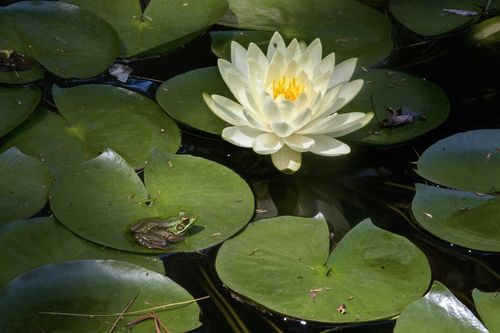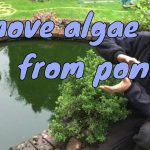Have you ever taken a moment to ponder what lives in a pond? Ponds are fascinating ecosystems teeming with a diverse array of plant and animal life. From tiny microorganisms to majestic waterfowl, ponds are home to a vibrant community of organisms that play vital roles in the ecosystem.
The Diversity of Pond Life
Ponds are filled with a rich tapestry of life forms, each contributing to the delicate balance of the ecosystem. Let’s take a closer look at some of the fascinating creatures that call ponds their home:
1. Microorganisms
At the base of the pond’s food chain are microorganisms such as algae, bacteria, and protozoa. These tiny organisms play a crucial role in nutrient recycling and are essential for the health of the pond ecosystem.
2. Aquatic Plants
From delicate water lilies to sturdy cattails, aquatic plants thrive in the nutrient-rich waters of ponds. These plants provide oxygen, food, and shelter for a variety of pond creatures.
3. Insects
Ponds are bustling hubs of insect activity, with dragonflies, water beetles, and mosquitoes being just a few of the many insects that call ponds their home. These insects are not only fascinating to observe but also serve as an important food source for other pond dwellers.
4. Fish
One of the most iconic inhabitants of ponds is fish. From colorful koi to elusive catfish, fish species abound in ponds around the world. Fish play a crucial role in controlling insect populations and contributing to the overall biodiversity of the pond ecosystem.
5. Amphibians
Frogs, toads, and salamanders are common sights in and around ponds. These amphibians rely on ponds for breeding and provide valuable pest control services by feeding on insects.
6. Reptiles
While less common than other pond inhabitants, turtles and snakes can also be found in and around ponds. These reptiles play important roles in the ecosystem and are fascinating creatures to observe.
7. Birds
From graceful herons to playful ducks, birds are frequent visitors to ponds. Many bird species rely on ponds for food, water, and nesting sites, making ponds vital habitats for avian wildlife.
The Importance of Ponds
Ponds are not just beautiful natural features; they are also essential ecosystems that provide numerous benefits to both wildlife and humans:
- Ponds serve as important breeding grounds for many aquatic species.
- They help regulate water levels and prevent flooding in surrounding areas.
- Ponds improve water quality by filtering pollutants and sediment.
- They support a wide variety of plant and animal species, contributing to overall biodiversity.
- Ponds provide recreational opportunities such as fishing, birdwatching, and photography.

Credit: www.readworks.org
How to Explore Pond Life
If you’re interested in discovering the wonders of pond life, here are some tips to help you get started:
- Visit a local pond or wetland area and observe the plants and animals living there.
- Bring a pair of binoculars to spot birds and other wildlife from a distance.
- Consider taking a guided nature walk or boat tour to learn more about pond ecosystems.
- Bring along a field guide to help you identify the plants and animals you encounter.
- Take photographs or make sketches to document your pond exploration adventures.

Credit: www.pinterest.com
In Conclusion
Exploring the diverse and fascinating world of pond life is a rewarding experience that can deepen your appreciation for the natural world. Ponds are not just bodies of water; they are vibrant ecosystems teeming with life and waiting to be discovered. So next time you come across a pond, take a moment to observe its inhabitants and marvel at the intricate web of life that exists within its waters.



